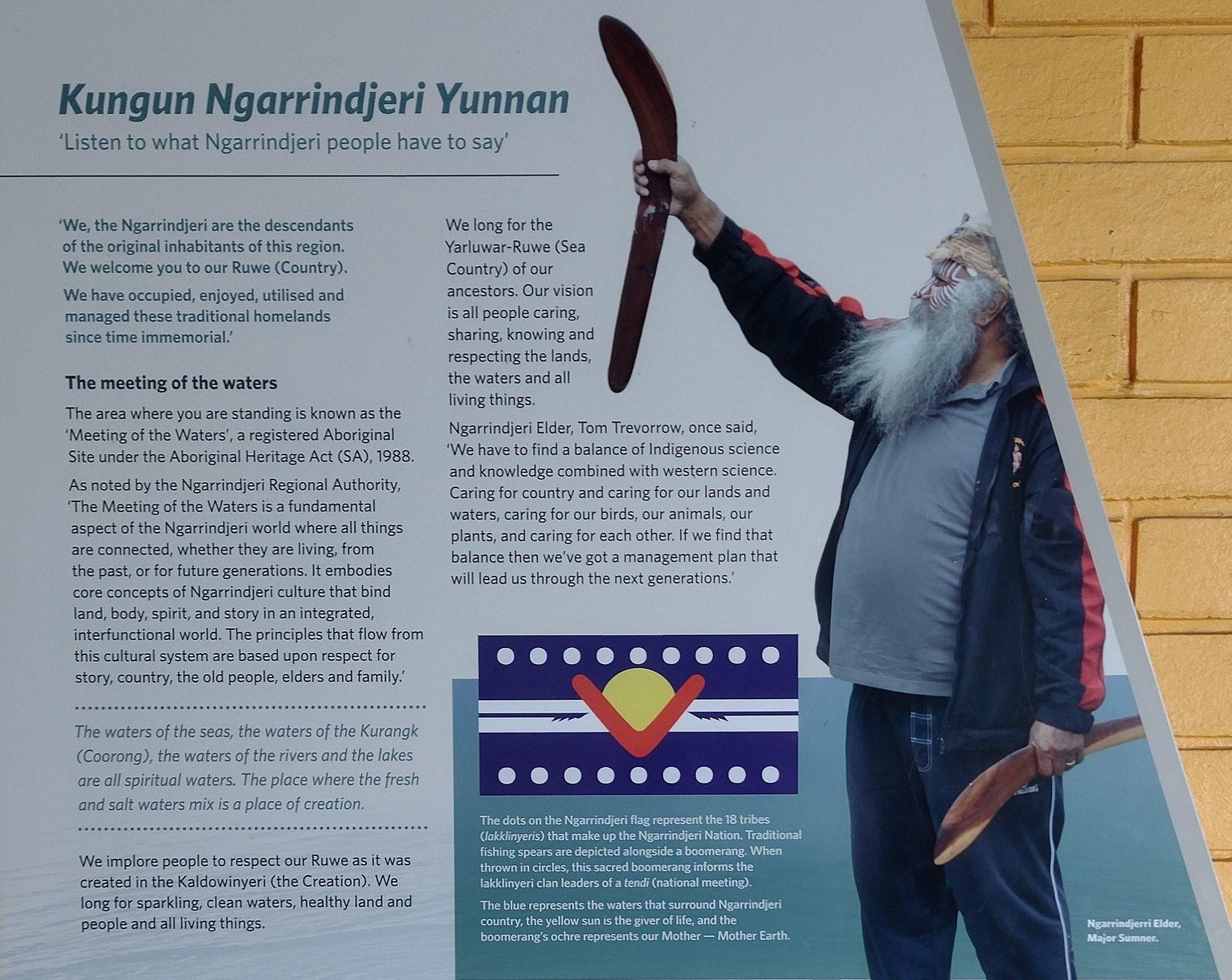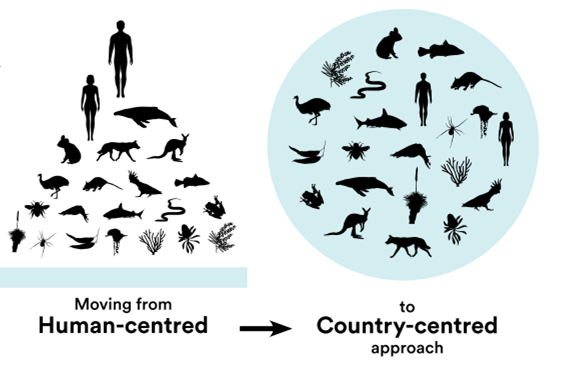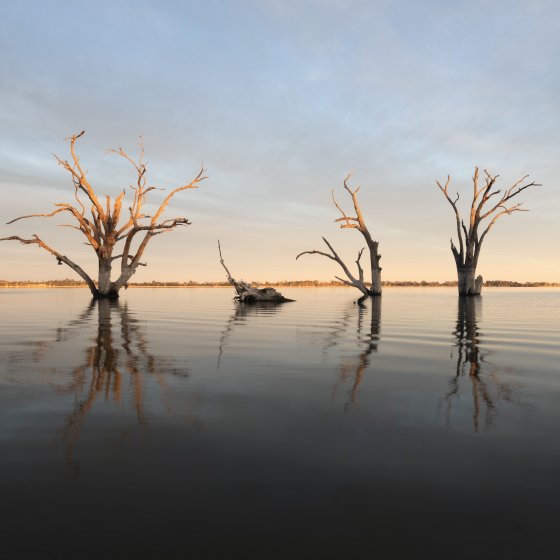- Home
- Health of Country
- What More Should We Do
What More Should We Do

The words in this photo suggest that we need a shared vision, respect for Country, a balance between Western and Indigenous science and knowledge, caring for Country and each other.
The need for a ‘knowledge corridor’ between Western and First Peoples’ knowledge was highlighted, given that Western science is not always conducive to Aboriginal and Torres Strait Islander peoples and their knowledge systems. First Peoples knowledge is ancient, spanning thousands of years, and coming from many different First Peoples groups is very diverse. This depth and breadth would provide significant benefits to Western ways of thinking about and managing oceans and coasts. Cultural corridors on Country are similar, where nobody owns the corridor, but knowledge is shared and there are standards to use it. Yet, this knowledge must also be protected and shared by Aboriginal and Torres Strait Islander people on their own terms.
Sustainable oceans and coasts national strategy 2021–2030
Engagement with Aboriginal people has suggested that we need to work better together and build effective working relationships. We all want the same outcome, and that is to protect and restore a healthy environment to support our health and wellbeing. We also need to consider the environment more holistically and recognise that everything is connected, including ourselves, and move towards being at one with nature instead of controlling it.
Connecting with Country and nature requires us to shift from a human-centred approach, which prioritises the needs of people over the environment, to a Country-centred approach that considers ourselves as part of nature.

An expert paper was commissioned to explore how the SA Government could more effectively engage and actively involve First Nations people in monitoring, reporting on and caring for Country.
The expert paper identified that, internationally, the Kunming–Montreal Global Biodiversity Framework ‘acknowledges the important roles and contributions of indigenous peoples and local communities as custodians of biodiversity and as partners in its conservation, restoration and sustainable use’.
The paper also points out that the Australia State of the Environment Report 2021 emphasised the importance of including First Nations values, knowledge and expertise ‘to create the first holistic assessment of the current state of Australia’s environment ... highlighting the importance of cultural knowledge that has sustained Australia for tens of thousands of years’.
The expert paper suggests that the achievement of more effective Aboriginal engagement and active involvement in caring for Country in South Australia would require the adoption of a formal, structured and resourced process.
The paper suggests that the establishment of a First Nations Expert Environment Committee would be an important first step, with appropriate commitment, support and partnerships provided by the South Australian Government. The aim would be for this committee to partner in the co-development and co-delivery of a framework to facilitate ‘best practice engagement of First Nations peoples in environmental research, monitoring, risk assessment, management and reporting‘.
The South Australian Government has previously made a commitment to ‘establish an Aboriginal Ministerial Advisory Group to ensure the minister for the environment hears directly from Aboriginal people'[1] and that ‘The (new) Biodiversity Act will incorporate the knowledge of Aboriginal South Australians in the management of land and respect for its ecosystems'[2]. The SA First Nations Voice to Parliament is also in the process of being established.
[1] South Australian Labor (election commitment): For the Future – Environment: Protecting Parks
[2] South Australian Labor (election commitment): For the Future – Plan for Biodiversity Protection
In response, the 2023 SOER has provided a recommendation to the South Australian Government.

The South Australian Government ensures that, in establishing a South Australian First Nations Voice to Parliament, an Aboriginal Ministerial Advisory Group and introducing a Biodiversity Act incorporating knowledge of Aboriginal South Australians, it creates and implements an effective framework for bringing First Nations values, knowledge and expertise into the state’s efforts to protect, restore and report on the health of the environment.
